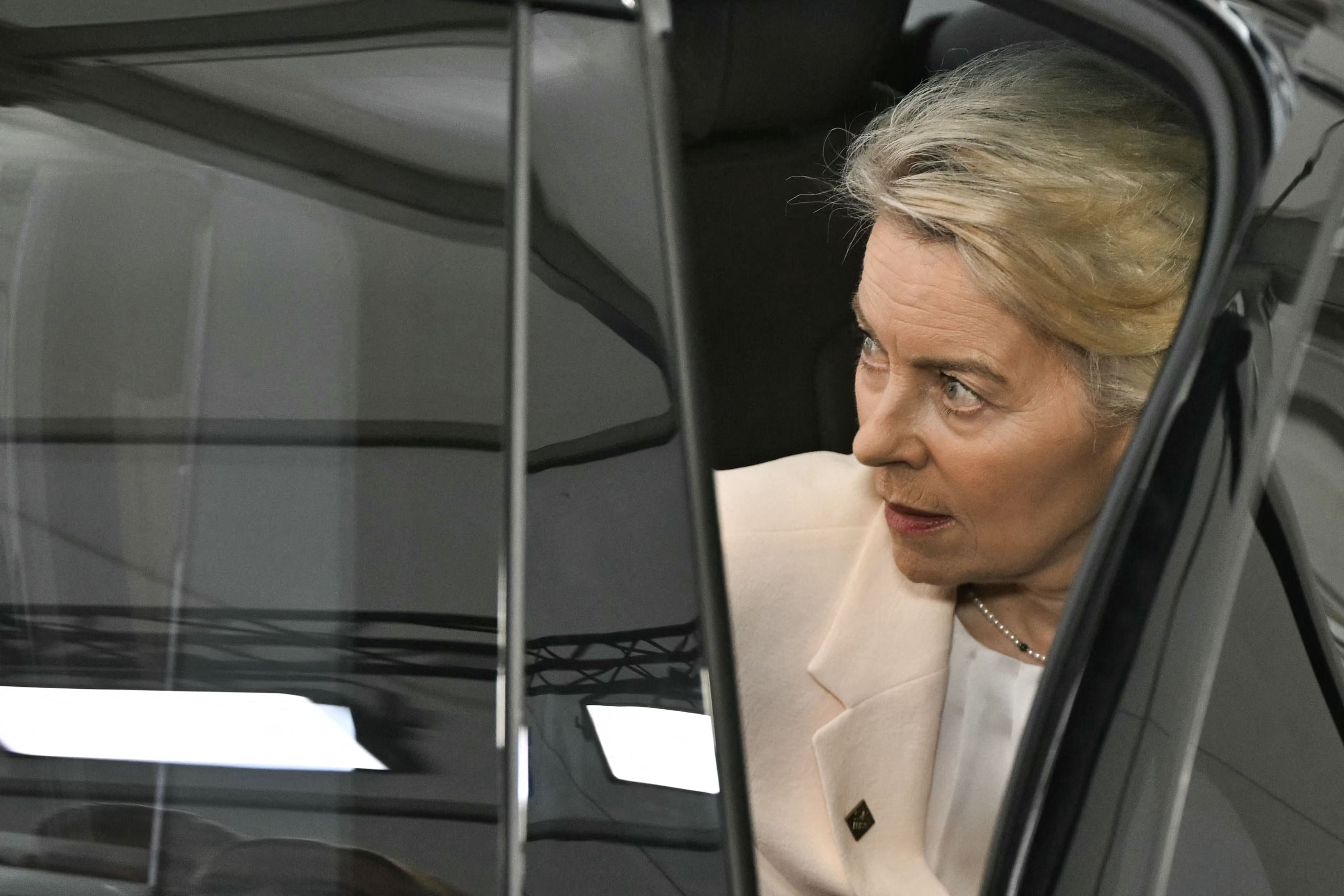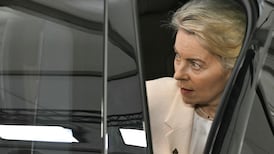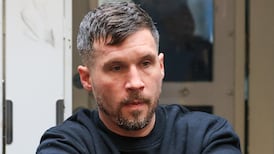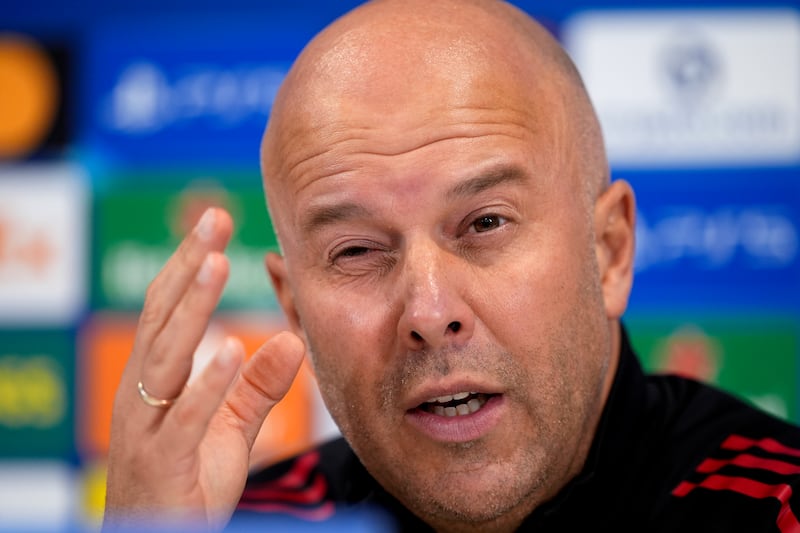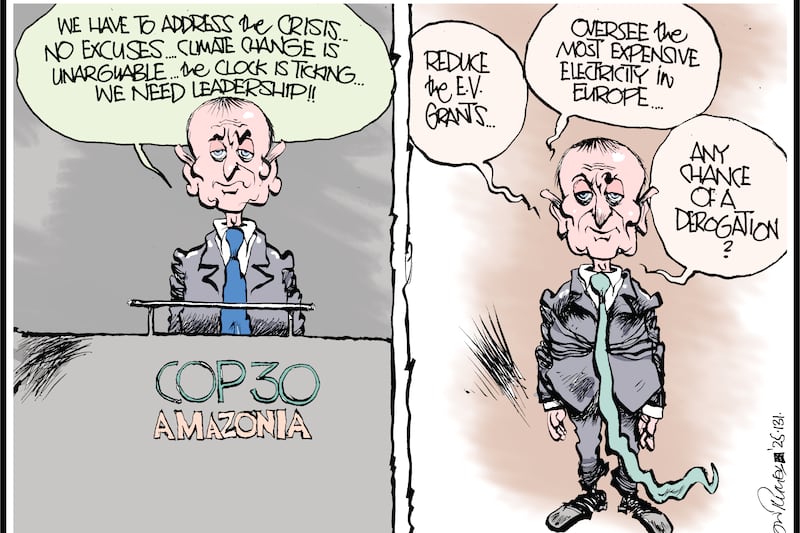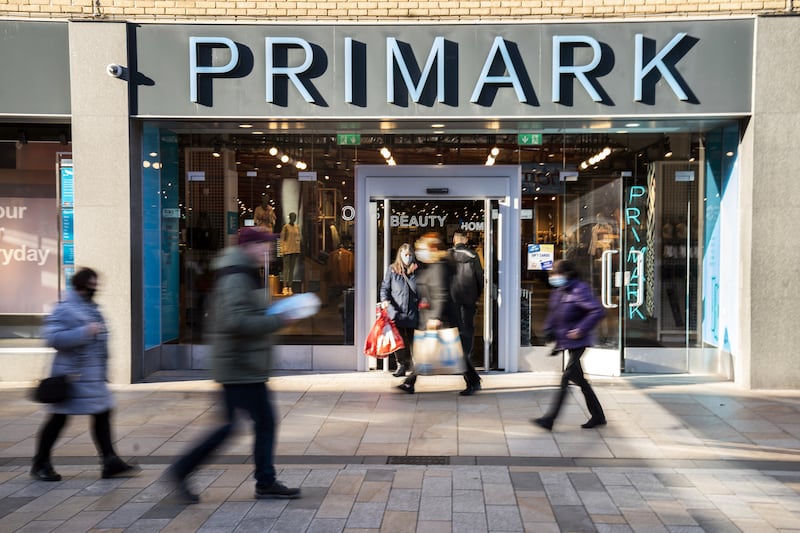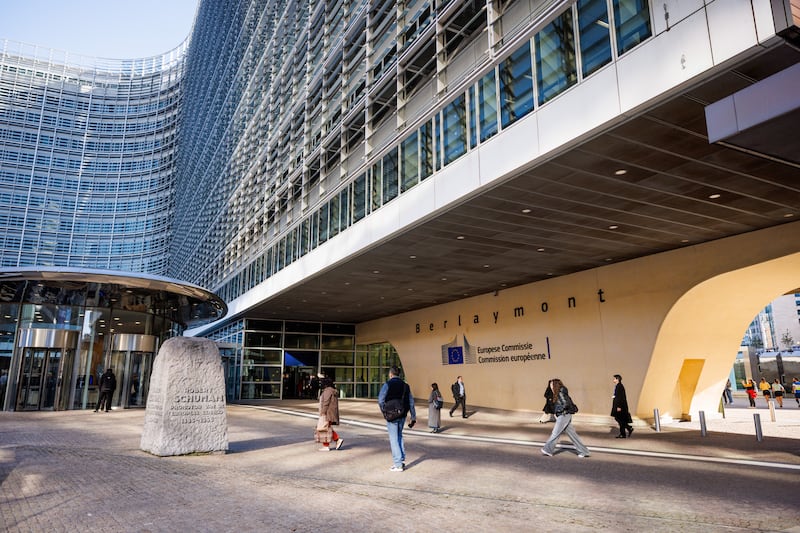Holly Cairns is losing patience with the “nonsense” in Leinster House.
The 36-year-old Cork South-West TD had her first baby on the day of the 2024 general election, finished maternity leave and returned to her role as leader of the Social Democrats in September. Motherhood hasn’t changed her political lens, as she was always alive to issues such as childcare.
“But what I feel is quite different for me now is I have even less patience for some of the nonsense in here,” she says in her Kildare Street office, as the division bell for the Dáil rings in the background, signalling a vote.
Returning to work has been “very logistically difficult” and felt like an “insurmountable thing”, she says. Commuting from her Cork Southwest constituency takes more than four hours.
READ MORE
“It’s five hours if you stop, and there’s a lot more stops with a baby,” she says.
Cairns says she could not leave her baby at home three days a week, but she could not bring her up and down within the same day either.
“We’re often here till after childcare hours,” she says. “Not that we can get a creche place anywhere.”
For now, Cairns’s partner, Barry Looney, accompanies her and their baby to make her job “possible and workable”.
It’s an arrangement the family can manage for now, but it won’t be sustainable in the longer term. “He can’t do that forever with his work,” she says.
She invests much to get to her own work at Leinster House, often with little gain in return.
“You come in, you put in all of this time and everything to get here, to be here and then you ask a question, and you don’t get an answer,” Cairns says.
“I feel like my focus is more laser. I have less patience for that kind of nonsense. I just want to get to the point.”
She says there were times when returning to work “felt impossible”.
After winning back her seat the day she gave birth, she faced a 10-hour round trip with a newborn baby to sign the roll of members in Dublin as a newly elected TD in December after the November 29th general election last year.
Cairns still doesn’t know how some of the logistics of juggling work and family life will work.
“I haven’t spoken much about this for that reason,” she says. “But I think it’s important not to sugar-coat it. It is difficult. It has been hard, and we’re always figuring it out as we go.”
During her maternity leave, Cairns didn’t spend more than an hour away from her baby girl.
“I found [it] really hard coming back to work. Sometimes I still do, but I was also eager to get back,” she says.
When she was first elected to the Dáil in 2020, Cairns tried to introduce a Bill giving full maternity entitlements for councillors. Women in politics still face a stigma when they take maternity leave.
On an episode of the Path to Power podcast in August, Ivan Yates said the length of her maternity leave demonstrated “a lack of seriousness” by the Social Democrats. “She never says anything about anything ... she’s actually disappeared for 12 months,” Yates said on the podcast.
“Those comments just sound quite attention seeking,” Cairns says. “So I don’t think I give them too much attention. It’s 2025 and we have so few women in politics that we do need to get past this kind of thing. Comments like that are so ridiculous and so unhelpful.”
The Soc Dems offices in Agriculture House, a short walk from Leinster House, share a corridor with the newly vacated office of president-elect Catherine Connolly. The party was an important early endorser of Connolly in her presidential campaign and the left-wing alliance of parties that campaigned for her has started a conversation around the possibility of a future Sinn Féin-led left-wing coalition government.
But, just two weeks after the presidential election and the unity of that campaign, Cairns highlights significant points of difference with Sinn Féin, suggesting the Soc Dems are further to the left on issues such as climate, taxation and immigration and that “some of their policies aren’t left wing”.
“There are things that we don’t align with Sinn Féin on and climate’s a really good example,” she says.
“There’s more. We’re more compatible with them than parties on the right of centre.”
She says Sinn Féin “to a certain extent” tends to promise the same large tax cuts and investment in public services as Fianna Fáil and Fine Gael.
During the presidential election, Máiría Cahill, who was raped as a teenager by a senior member of the IRA and who accused Sinn Féin of trying to cover it up, criticised the fact that former Sinn Féin leader Gerry Adams was out canvassing for Connolly.
While Cairns says this case is separate to Sinn Féin and party leader Mary Lou McDonald endorsing Connolly, she does have concerns about how Sinn Féin dealt with the Cahill case and the other case of abuse involving Adams’s niece Áine at the hands of his brother Liam, Áine’s father.
Cairns says she has concerns about how those women were treated.
“Absolutely, I do,” Cairns says.
In the Dáil this week, Cairns criticised the Government for “trying to hang on to the nitrates derogation for dear life”. The directive is the exemption that permits farmers to use more nitrogen than EU environmental laws allow. Fianna Fáil’s deputy leader, Jack Chambers, used it as an opportunity to throw a political jab at Cairns: “I’m sure many of the farmers in west Cork wouldn’t welcome your remarks, which would put them out of a livelihood.”
“I didn’t get into politics to plamás anybody,” says Cairns in response.
Cork South-West is among the constituencies with the highest number of nitrates derogations, according to an analysis of Environmental Protection Agency data.
Is she nervous about a backlash?
“I’d rather lose my seat than say something that I don’t believe in because I didn’t go into politics to do that,” says Cairns who grew up on a farm.
She says she meets the Irish Farmers’ Association every year and that they know where she stands. When she breaks down her position, “they don’t really disagree with me”, she says.
Would she make the environmental case for water charges? Cairns says she doesn’t know, but she doesn’t rule it out.
“It’s something I’ll look into. I’m not going to give you a half-baked answer, because it wouldn’t be a good one, necessarily. So I might have to think about it, look into it and get back to you,” she says.
She says she would make a senior minister for disability a “deal-breaker” for being a part of the next government. This would require dropping an existing senior minister role, due to a constitutional limit of 15. Cairns proposes merging either Education and Higher Education, or Finance and Public Expenditure.
“They would be the two that I would suggest we’d look at, but obviously that’s up for negotiation,” she says.
Disability is a key issue for her party. Cairns called for a Yes in the last year’s referendum in which the public overwhelmingly rejected a proposed replacement to the constitutional reference to a mother’s duties in the home with a clause recognising care provided by family members.
Now, she says the wording was “really bad”.
“Maybe we should have looked at it more than we did at the time,” she says.
“I find it really jarring that in the election, the Government made disability such a thing of theirs after that interaction that Simon Harris had in Kanturk,” says Cairns, referring to the confrontation between the Tánaiste and a disability care worker that became a viral incident that put Fine Gael on the back foot in the general election campaign.
Cairns claims that, on the disability issue, the Government, following the election, “just blatantly dropped it then”. She puts this down to “electioneering”.
Cairns is sharply critical of the recent comments by Harris that the number of migrants entering the country is “too high”.
She accuses Harris of “fanning the flames of something” in an “obvious reaction” to the defeat of Fine Gael’s candidate, Heather Humphreys, in the presidential election.
“He was including people here on work permits in that, so he hasn’t clarified where he wants to cut workers. What sector is it? Healthcare? Is it hospitality? Is it meat factories? Is it construction?”
She is concerned at the recent arson attacks on accommodation centres or proposed centres for those seeking asylum in the State.
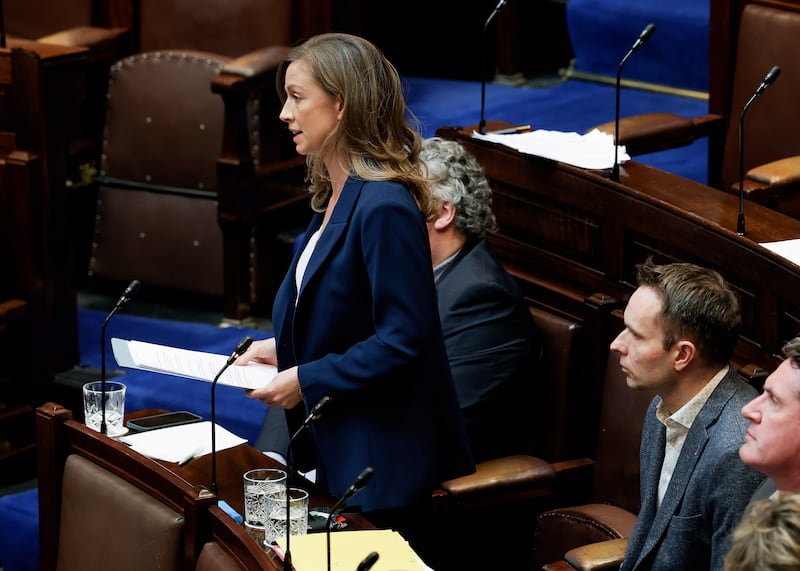
“This is unprecedented. This is so dangerous. There’s been 30 attempted arson attacks on either IPAS centres or proposed ones,” she says.
She says the Government is using “tough on immigration” language rather than focusing on people’s safety.
Asked about the concerns of local residents arising from the recent alleged assault on a 10-year-old girl in Saggart, west Dublin, in a case in which a failed asylum applicant has been charged, Cairns says: “It’s about giving context and it’s about giving all of the information in a fact-based way.”
She says it is “more frequent” for violent attacks against women and children to be perpetrated by Irish men. “They are just the facts,” she says.
Cairns is taken aback at how political tensions in the Dáil can spill out into the corridors of Leinster House, making that workplace an antisocial environment.
“More than one” Government TD had been really rude to her in those corridors over her opposition to State funding of greyhound racing, she says. She won’t name the politicians: “I wouldn’t single somebody out in that kind of way,” she says.
“I don’t understand why there’s such a strength of feeling for the greyhound racing industry when it is a dying industry,” she says.
Cairns returned to work on the same day that one of her party TDs, Eoin Hayes, was in the news again, for being pictured in blackface – a practice considered offensive and racist – when he dressed up as US president Barack Obama in 2009.
[ There’s no excuse for Eoin Hayes not knowing the racist history of blackfaceOpens in new window ]
“There’s no denying it was the last thing I wanted to be talking about my first day back,” she says.
Asked if the release of the photograph was timed with her return to work, she says she “honestly” doesn’t know.
When she was nine months pregnant during the last general election, Cairns feared people wouldn’t vote for her if she was going “straight on maternity leave” after the election, though she stresses to the women reading her remarks in this interview that this was not a rational fear.
Cairns has suffered serious abuse and harassment, with a stalker previously showing up at her home.
In the aftermath, she started locking her door more and became conscious that wouldn’t be able to hear an intruder when using a hairdryer.
Now that she has a baby, does the price of being a woman in politics feel too high?
“Like every new mother, there’s that real protective feeling that comes in,” she says.
“So I suppose it did come into my mind that she’ll be a private person. She hasn’t chosen to be a public figure and she won’t be.”


